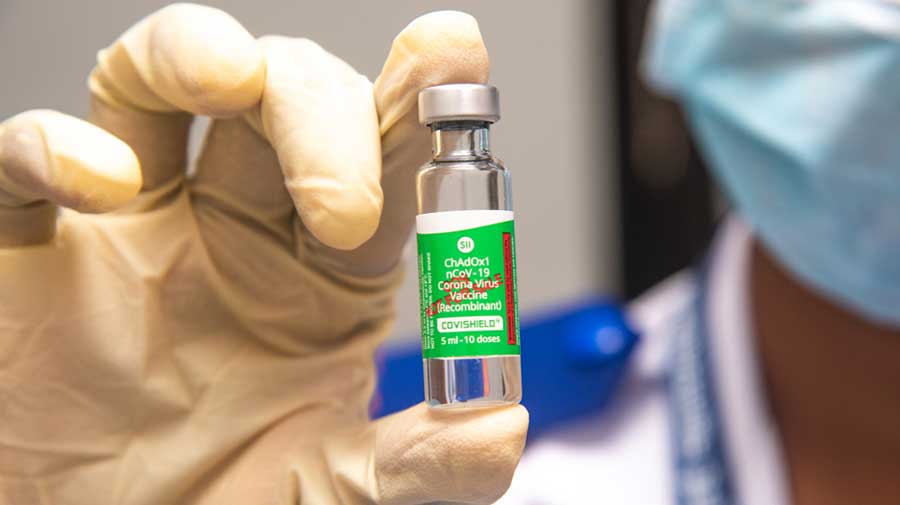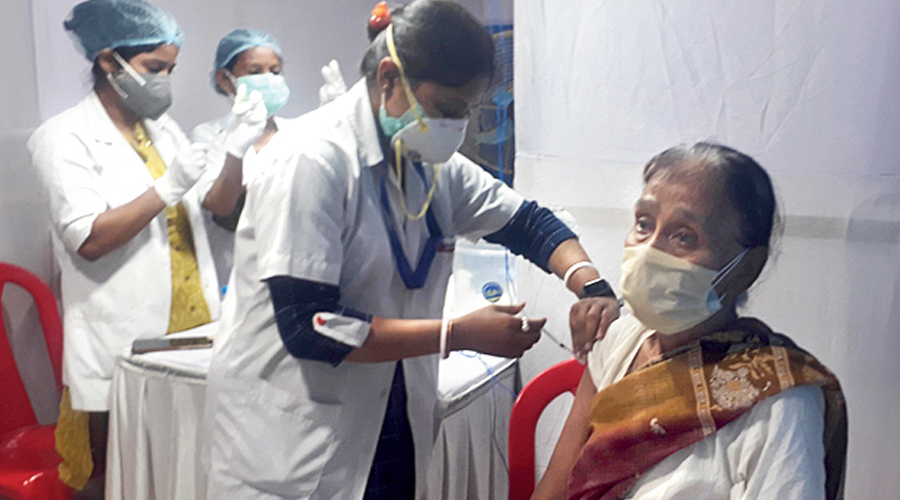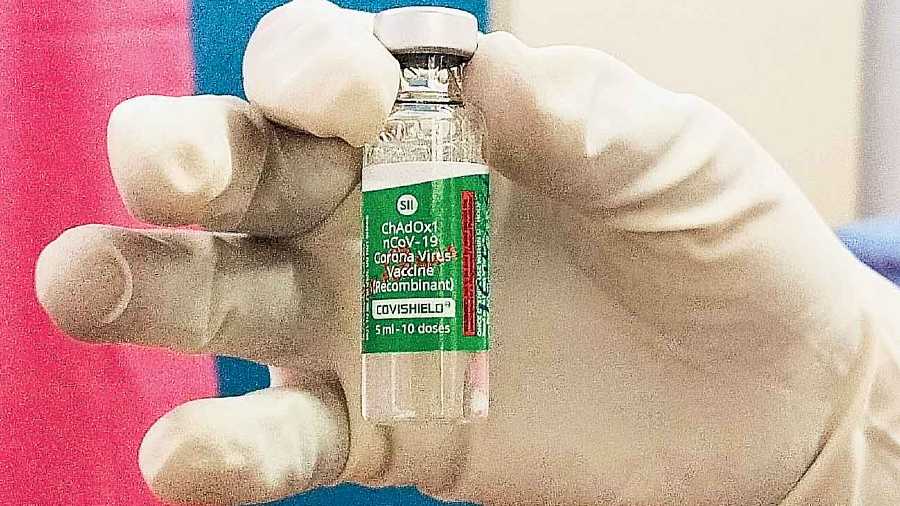Kerala High Court has issued a notice to the Union health ministry seeking an explanation why the minimum gap between two doses of the Covishield vaccine, the most widely used in India’s inoculation campaign, is 84 days in most cases.
“The court asked the government whether the 84-day gap had been prescribed because of increased efficacy or shortage of vaccines,” said senior counsel Blaze K. Jose, who appeared for Kitex Garments Ltd.
The court issued the notice after hearing a petition filed by Kitex, one of the biggest garment manufacturers in Kerala, which has sought permission to administer about 10,000 second doses of Covishield to its employees and their family members at a shorter interval.
Jose told The Telegraph after Tuesday’s hearing that the sole argument the petitioner had offered was about the discrimination being made between segments of the population in determining the gap between the two doses.
“Our only argument is that since sections of the population, such as those travelling abroad for studies and work, are being allowed to take two shots 28 days apart, why not allow those who are ready to purchase vaccines to follow the same regime?” Jose said.
The case was adjourned to Thursday for the government to respond.
Sajeev T.K., general manager of Kitex Garments, which is based at Kizhakkambalam in Ernakulam district, said the company had bought 10,000 doses of Covishield about a month ago to administer second shots.
The doses were brought through a private hospital. The vaccine stocks are lying in the cold storage of the hospital at Muvattupuzha in Ernakulam.
The company had administered the first dose to its employees and their family members in June.
“No amount of requests to the state health department or the district medical officer has been of any help in speeding up the second dose. That’s why we went to court, seeking the same relaxation allowed to some sections of the population,” Sajeev told this newspaper.
Sajeev questioned the logic of allowing a certain segment of the population to take two doses in under a month while the majority was being made to wait 84 days.
“We are not asking for free vaccines. In fact, we are also paying the hospital a service fee of Rs 150 per dose from our coffers. All we need is permission to administer the second dose so that all our employees and their kin feel that much safer,” Sajeev said.
Kitex has around 7,000 employees, many of them in the tailoring units. The company is apprehensive about outbreaks at the units in the absence of complete vaccination.
“We have a fully certified vaccination centre that meets all parameters prescribed by the health department. The centre has resting areas and even facilities to handle any emergency. I don’t understand the government’s obstinacy in not reducing the gap, especially with Covid cases so high in Kerala and a third wave appearing imminent,” he added.
Kerala has been reporting the highest number of daily Covid cases in the country for over a month, with the figures mostly staying above 20,000. Although the fatality rate is low at 0.51 per cent, the test positivity rate has remained high — around 15-18 per cent.













